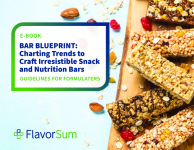Astaxanthin off the menu for Tate & Lyle
the UK has been called off after operating losses mounted to more
than £3m (€4.4m).
Tate & Lyle announced today that Astaxanthin Partners, its joint venture with Igene Biotechnology, will stop production of astaxanthin at the Tate & Lyle site in Selby, North Yorkshire.
The company said it was faced with closing down the plant in the wake of the rising cost of raw materials, including sugar and sugar related products like dextrose, as well as energy costs, and the falling commercial sale price of the nutrient.
Astaxanthin, the nutrient that gives salmon its pink colour, has been linked to heart health benefits, eye health and weight management, and has been tipped as a nutrient set to soar in value.
Annual growth of the global market for astaxanthin for human use is thought to be at least 15 per cent, with current estimates valuing the market at $15-20m (€12.4-16.6m) per year.
Indeed, the world carotenoid market is expected to reach €0.77bn ($1.06bn) by 2010 as consumers continue to look for natural ingredients, a report by Global Industry Analysts last month predicted.
But this could cast doubt over those predictions if other astaxanthin producing companies who use sugar fermentation are hit by spiralling production costs.
The carotenoid, thought to have a free radical fighting capacity worth 500 times that of vitamin E, also has a similar structure to lutein and zeaxanthin, but there are indications that it has an even stronger antioxidant activity.
But Tate & Lyle, which has been in a 50:50 joint venture partnership with Igene since 2003, said it was no longer profitable following rising costs of raw materials, energy prices and the impact of the EU Sugar Regime.
The firm is also in discussions with Igene Biotecnology to leave the joint venture all together.
Astaxanthin Partners produced astaxanthin by fermenting sugar - and the astaxanthin is used as a nutrient for farmed raised fish like salmon and trout and it gives them their characteristic pink flesh.
A round of consultation with workers has begun and is expected to last 30 days, with production at the plant expecting to finish at the end of September.
Production began in 2004 and Tate & Lyle has never revealed output numbers.
Tate & Lyle's share of the operating loss of astaxanthin for the year to 31 March 2007 was £3 million, with the group's share of cash closure costs estimated at £3 million.
Stanley Musesengwa, chief operating officer, said: " The difficult decision to begin the consultation process follows a full review of the business and its profitability for the foreseeable future.
This decision is not a reflection of the hardworking employees we have at the site and every effort was made to secure the future of the plant. "
The business has faced pressures due to escalating raw material prices resulting from changes in the EU Sugar Regime and higher energy costs," he stated.
"Unfortunately an increasing cost base coupled with a falling selling price means that production of astaxanthin at the Selby site is no longer commercially viable."
Tate & Lyle was forced to close its UK citric acid operations in the face of intense competition from Chinese imports and oversupply in the world market earlier this year.
In the year to 31 March 2006, Tate & Lyle's UK citric acid business at Selby returned sales of £26m and an operating loss of £2m. Citric acid is the most widely used preservative in the world, and is used in numerous food and drink applications.














